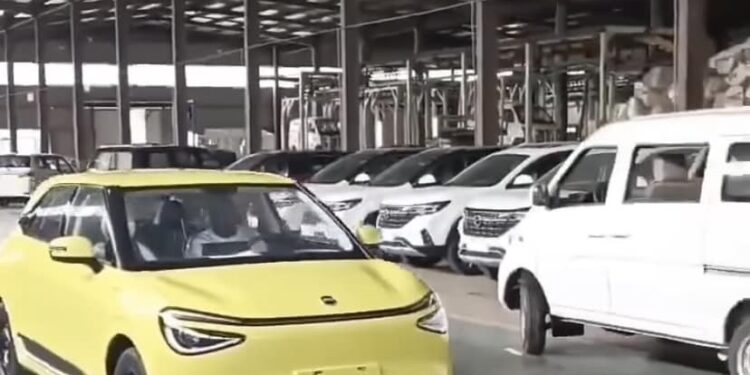
by Atafo Igbinedion
Innoson Vehicle Manufacturing Company (IVM) has made history by unveiling its first locally produced electric vehicle (EV). The vehicle was manufactured at the company’s production plant in Nnewi, Anambra State.
Cornel Osigwe, Head of Communications and Corporate Affairs at Innoson, shared the exciting news on Facebook, stating, “I just test drove the first Innoson electric vehicle produced in Nnewi. We are just starting.” This marks a significant milestone for the company as it enters the growing electric vehicle market.
While Mr. Osigwe confirmed this is Innoson’s first-ever electric vehicle production, details regarding pricing, the number of units produced, and the timeline for the commercial release of the vehicle were not disclosed.
The production of electric vehicles is a critical step in reducing carbon emissions from road transport, which accounts for over 15% of global energy-related emissions, according to the International Energy Agency (IEA). As the global demand for electric vehicles increases, driven by improved technology, performance, and variety, Nigeria is beginning to take strides in this direction as well.
Despite these advancements, challenges remain in Nigeria, particularly with the country’s power supply. Nigeria currently generates only about 5,000 megawatts of electricity, while energy demands exceed 40 terawatts. This energy shortfall, combined with high electricity costs and limited charging infrastructure, presents hurdles for widespread electric vehicle adoption.
Innoson’s introduction of a locally produced electric vehicle follows the debut of Nigeria’s first locally assembled electric vehicle, the Hyundai Kona, in 2021 by Stallion Motors. That milestone was part of a broader initiative by the National Automotive Industry Design and Development Council (NADDC) to promote the establishment of solar-powered electric vehicle charging stations across the country.
As the Nigerian automotive industry begins to embrace electric vehicles, the increase in petrol prices following the deregulation of the petroleum sector may encourage more interest in EVs, provided the cost of charging remains competitive with conventional fuel options.



